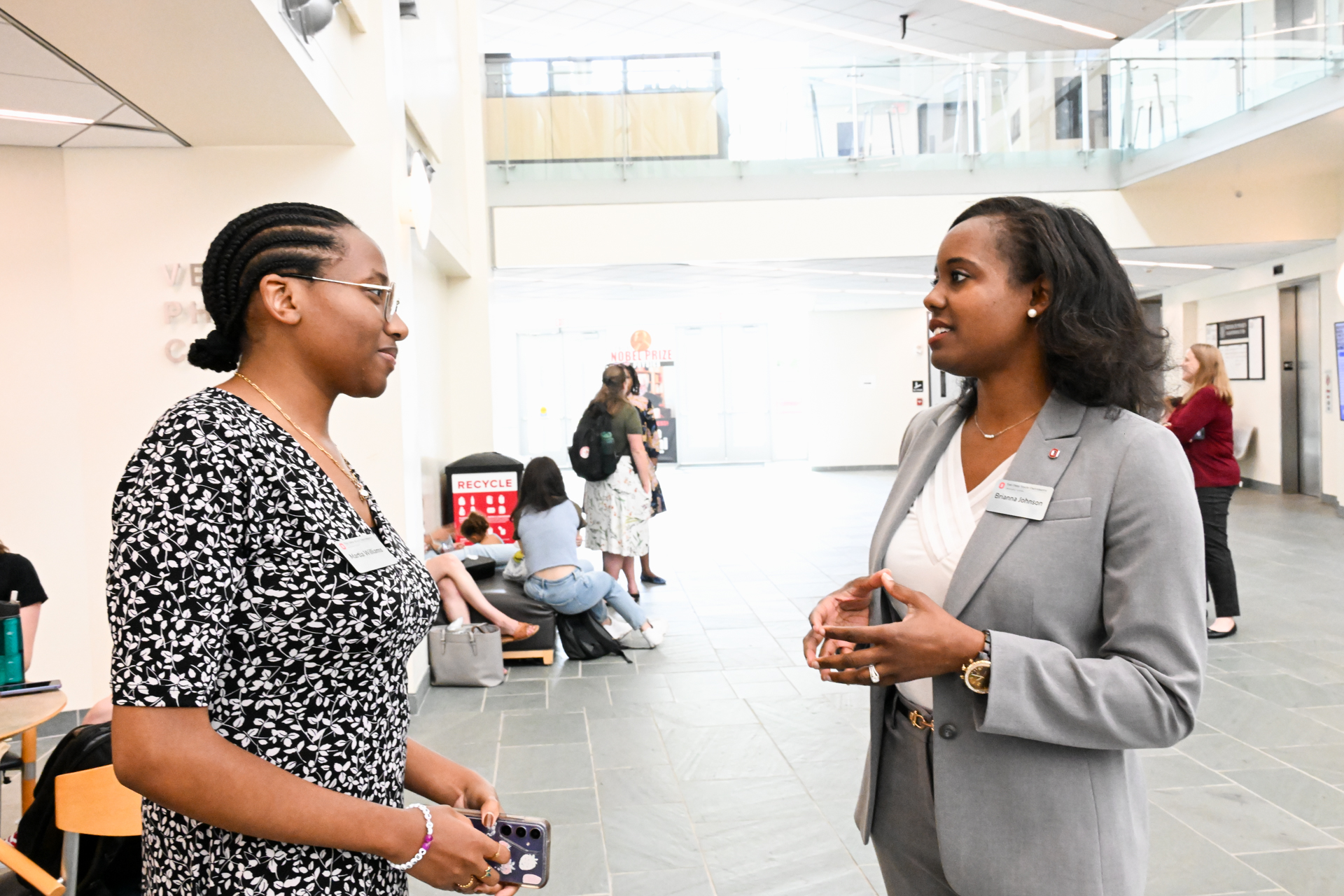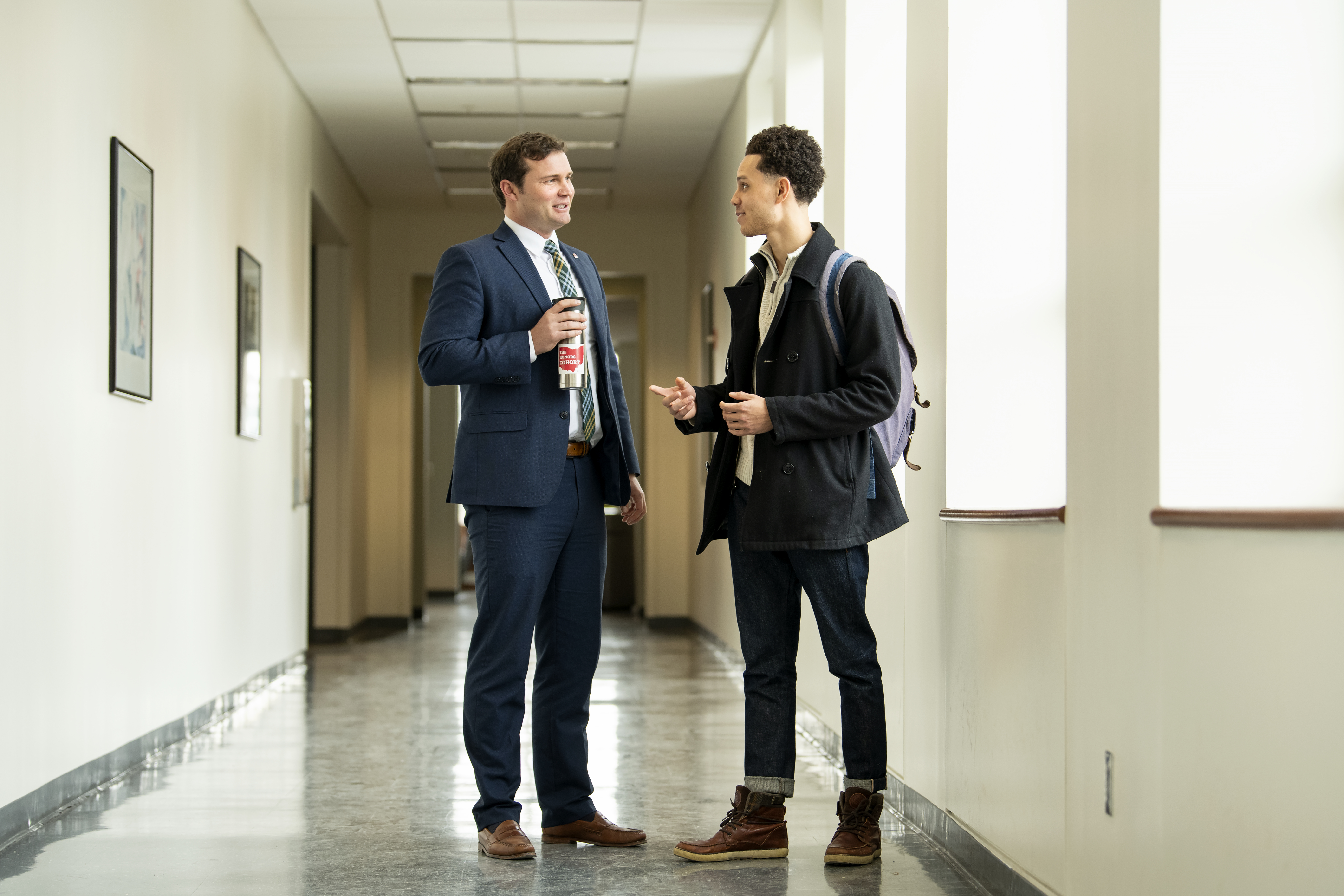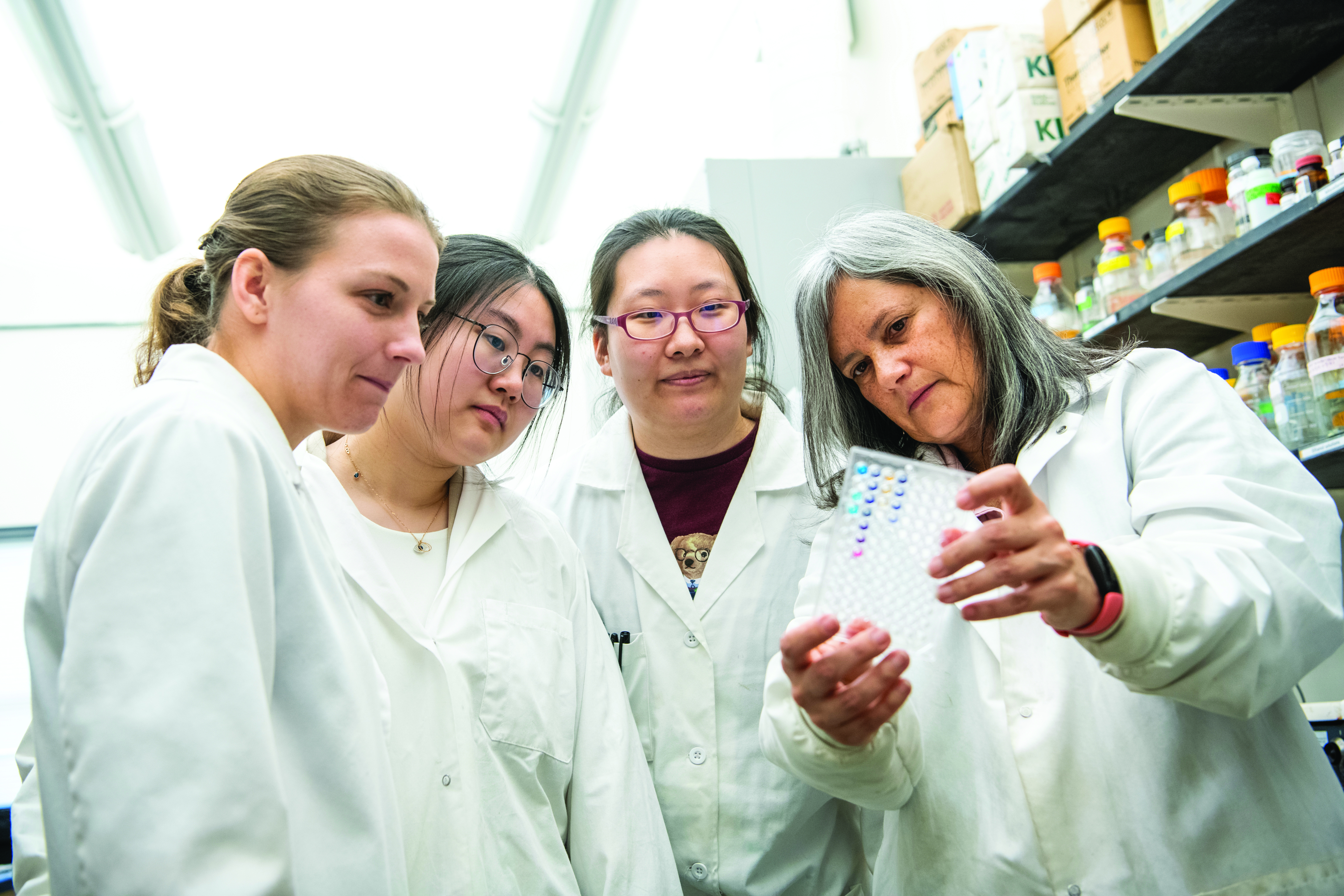Resources for Postdocs or Graduate/Professional Students
Mentees play an important role in partnering with their mentors and networks to advance their academic, career, and personal development. The Graduate School has curated resources, templates, and tools to equip mentees with the support necessary for effective mentorship and development.
Individual Development Plan (IDP)
An important part of mentorship and overall professional development is the creation of a personalized strategic plan to realize scholarship-related, career-related, and/or professional development objectives.
Ohio State IDP tools
- Beyond the Professoriate. Choose OSU and use your name.# to login.
- myIDP by AAAS. For STEM disciplines.
- ImaginePhD. For social and behavioral sciences, arts, and humanities disciplines.
- The Versatile PhD. For humanities, social and behavioral sciences, and STEM disciplines.
- Career Planning for Early Career Scientists by iBiology. Self-paced course with nine short videos.
Career Exploration and Expanding Your Professional Network
Expanding your network guide
The NCFDD recommends that the best way to expand your network is to focus on creating a system of support across multiple areas of your professional life.
It is recommended that you create connections with 3-4 people that can support you in each of these areas and sub categories. These area include:
Professional Development (Outside the Scientific Sphere) - 3-4 people
- Internal and External Connections
Emotional Support - 3-4 people
- Friends
- Family
- Other
Safe Space
Intellectual Community (e.g., Paper or Grant Readers) - 3-4 people
- 0-25% Complete with project
- 25% -50% Complete with project
- 50% - 75% Complete with project
- 75% - 100% Complete with project
Access to Opportunities - 3-4 people
- Internal Mentors
- Peer Mentors
- External Mentors
Sponsorship/Promoters - 3-4 people
- One Departmental Sr. Faculty Member
Role Models
Substantive Feedback - 3-4 people
- Readers (see intellectual community)
- Department Colleagues
- Professional Editor(s)
- Build a mentoring network. People who are successful in their careers get that way because they have big professional networks. Mentoring networks include people with skills to address different types of mentoring, some personal and some professional. The goal for successful career resilience is to develop a multi-faceted, and discipline diverse network.
- Remember that mentoring is dynamic. There are many categories of mentoring, and your faculty mentor cannot provide every aspect of mentoring you need. This comment is not meant to be an insult to your faculty mentor’s capabilities, but rather that they also have limited time.
- For example, your faculty mentor might be able to serve as a role model and research mentor and connect you with prominent members of your research field; but you are also interested in entrepreneurship and technology commercialization, and they have no experience in these areas. The broader you can cast your net, the more likely you will be to get mentorship in what you need to be a successful, independent researcher.
- Expanding your network at Ohio State – where to start. See information below.
Informational Interviews
Informational interviews are opportunities to get together with people who have jobs about which you are interested in learning more. Some of these interviews might be with people you have not worked with previously or who are not even part of your contact network. You will need to tap different types of networks for this to be successful. Try to not rely only on your faculty mentor’s connections and availability to help you take the next step in your career.
The connections that you make will not just help you on your career path. They can also lead to collaborative research projects, joint publications, and funding opportunities.
Make a networking plan
- Who will you contact and how?
- What results are you hoping for?
- How will you follow up?
Networks to explore
- LinkedIn. Engage with your existing professional network to find new connections and opportunities.
- Alumni. Engage with alumni from your training programs. Alumni who stay connected to their alma maters are often doing so for recruitment and networking purposes, so they might have good advice and strategies for pivoting to the type of job you want.
- Professional associations. Seek out early-stage investigator career and CV review panels at conferences facilitated by the professional associations in your discipline.
- Interdisciplinary research communities at Ohio State (LINK). Seek out networking and presentation opportunities organized by leaders from interdisciplinary research centers and institutes at your university. These communities hold seminar series, informal networking opportunities, and communities of practice for early career scientists. One of the strengths of training at Ohio State is just how massive it is, so you should use this to your advantage.
The referral email
- Sometimes the only way you can get connected to the people with whom you want to engage is through sending emails. Ideally, consider having a former colleague who knows the person, who can facilitate the introduction for you, but this is never a given.
- If you are sending a message to someone to whom you have no connection, consider using this template as a starting point for the message you want to send.
- Since this is for career exploration purposes, even if you do not use this template, make it clear in the message you send that you are not looking for a position in their lab at this time. Many researchers will immediately disengage from these types of messages if it looks like you are expecting employment in their lab, or for them to connect you with their colleagues for similar reasons. See in this referral letter the sentence “Please understand that I do not expect you to have a position or be aware of any openings at this time.”
- Keep in mind, this request to meet is more important to you than it is to them, so make it clear that you are willing to step up to drive setting up the meeting instead of waiting for them to reach out to you because they are more senior.
- Try to keep this email as brief as possible (2-3 paragraphs max).
Prepare before the interview
Preparing for the meeting will help you…
- Make a good impression.
- Get your questions answered to help make career decisions.
- Gather any referrals they might have for other people with whom to have informational interviews.
Review academic/career profile (e.g., their LinkedIn) and other relevant pages (e.g., their personal or lab webpage, job-related press releases about their career/work)
- Reviewing this information in advance might prompt you to ask more relevant questions and save you from wasting time on generic questions for which answers are already available.
- If you already know a bit about their background and what parts of their career history you are specifically interested in, the informational interview will be a much more impactful process for you.
During the interview
- Start with an ice breaker. A bit about yourself and your potential career trajectory, keep it brief and relevant.
- Come prepared with questions but be flexible. Your conversation might lead to a place where it does not make sense to ask some of the questions you prepared. You do not need to ask your questions in a specific order if it does not make sense for the flow of the interview.
- Remember you are asking them to meet, so give them time and space to respond.
- Keep in mind: this process primarily benefits you, so make it clear that you will manage the post-interview follow-up process.
- The more senior the individual is, the more commitments they have, and the more likely it is that they will forget to provide you with the items you discussed. Try not to take this personally. If you send two or three messages and they do not respond, do not continue following-up, just move on and try to find additional people to interview who might be more responsive.
- If a job opportunity DOES come out of these meetings, great! But it should not be an expected outcome for a career exploration meeting.
Follow up after the interview
- Send a follow-up message. Thank them for their time. Ask for referrals, if pertinent. Send any additional information or materials you promised soon after meeting.
Expanding Your Network at Ohio State – Where to Start
In addition to setting up informational interviews (LINK), consider joining an interdisciplinary research community on campus. These centers and institutes provide programming at the intersection of many research disciplines, which is a great way to meet people who are working on different elements of the same problem as you.
These communities facilitate connections through conferences and workshops, seminar series, social events, newsletters, and seed grant and pilot award funding competitions to aid in the collection of preliminary data and findings that can be used to pursue additional extramural support.
Informal Mentoring
Reading list
- A Field Guide to Grad School: Uncovering the Hidden Curriculum by Jessica McCrory Calarco
- The New PhD: How to Build a Better Graduate Education by Leonard Cassuto & Robert Weisbuch
- The Reimagined PhD: Navigating 21st Century Humanities Education edited by Leanne M. Horinko, Jordan M. Reed, and James M. Van Wyck
- The Science of Mentorship podcast by the National Academies of Sciences, Engineering, and Medicine
- Check out Duke University’s list of books and articles here >>
Peer mentoring
Mentoring happens both vertically (between mentor and mentee) and horizontally (between peers). Students and postdocs can also receive effective mentoring from their peers, especially peers who have engaged in the activities they desire to achieve. Be intentional about making connections with others in your cohort, lab group, and community.
Additionally, get to know people in your unit who can help support your academic and research goals (e.g., lab managers, support staff). These people have a lot of helpful institutional knowledge.
Community, Health and Wellness
Visit the Graduate School Social, Wellness and Student Life area for resources.
Here are some specific groups that support communities at Ohio State.
- Find a student organization on campus based on various aspects of your background, identity, or interests. Even though postdocs are appointed as staff at Ohio State, many student organizations would welcome non-student community members, so do not be shy about reaching out!
- The Council of Graduate Students (CGS) and the Inter-Professional Council (IPC) are the official branches of student government that represent graduate and professional students, respectively.
- The Postdoctoral Association (PDA) builds community among and advocates for postdocs at Ohio State.
- The Office of Student Life provides resources for various student communities.
- The Black Graduate and Professional Student Caucus promotes academic, cultural, service, and social programs for the university community and Black graduate and professional students, in particular.
- Community Building and Conflict Resolution (CBCR) provides support to staff, faculty, and students with academic or Ohio State workplace concerns who are seeking to address conflicts and challenges within a restorative framework.
Mentoring Up Workshops
These workshops are designed to support graduate students and postdoctoral scholars in understanding their roles in collaborating with mentors to build effective mentoring relationships.
Navigating conflict
Listen. Learn. Discuss. is a set of skill-building resources for respectfully listening, discussing different points of view, building trust with one another, and successfully navigating complex conversations even – and especially – when we disagree.
The Office of Ombuds Services provides an independent, impartial, and confidential space where faculty members, graduate and professional students, and postdoctoral scholars can discuss issues and receive informal counsel and advice.
Both ombuds work with postdocs.

Other Mentor Resources
Need additional resources such as resources across campus? The Graduate School has brought together several resources to help support both mentors and mentees.

Ohio State Mentoring Initiative
The Graduate School is fully invested in supporting mentor and mentee development at Ohio State. Learn more and find general resources on our Mentorship page.

Mentor Toolkit
Are you a mentor? The Graduate School has provided tips and resources specifically for mentoring graduate student.